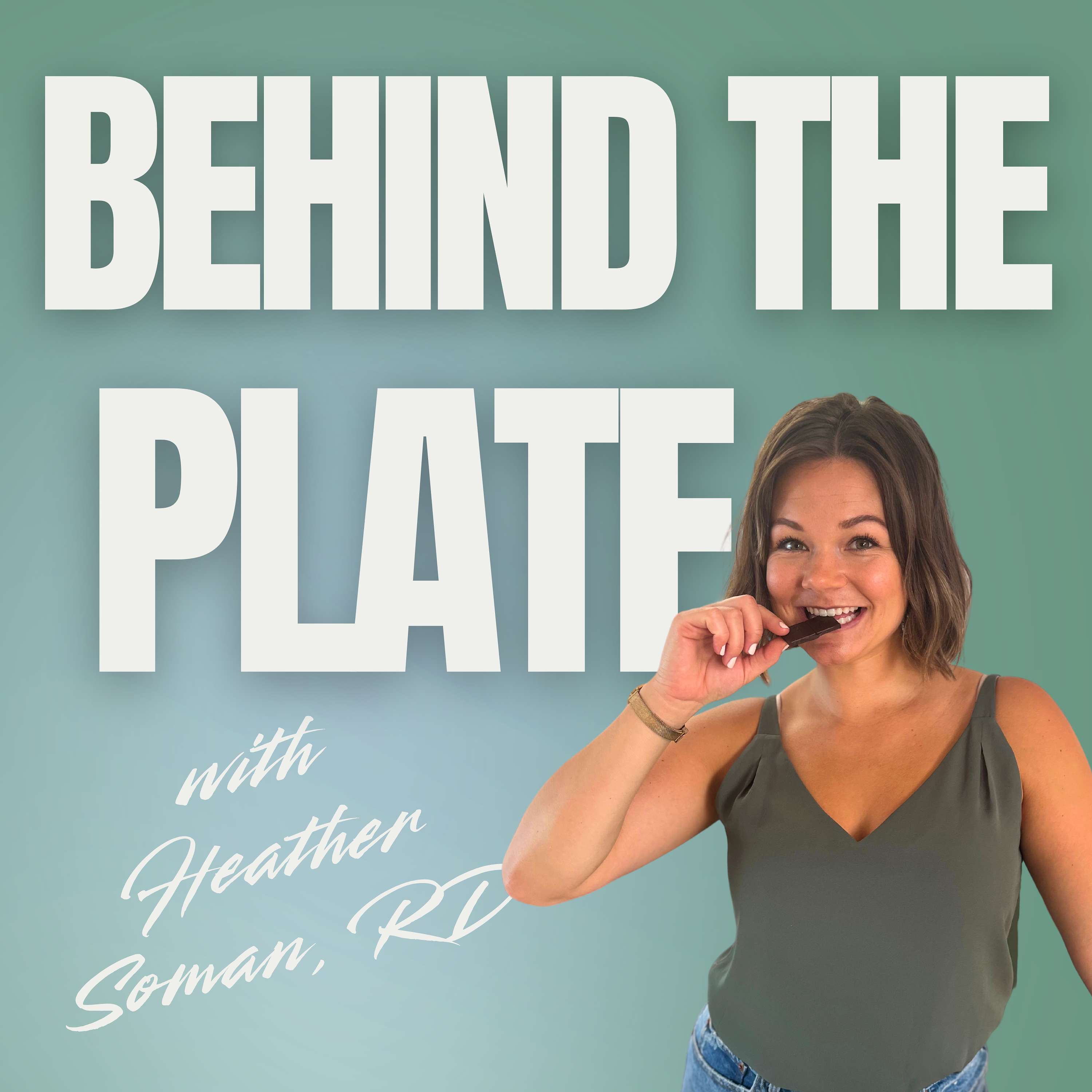Listen "Why Diets Don’t Work (and What to Do Instead)"
Episode Synopsis
If you’ve ever started a diet full of motivation only to “fall off” a few weeks later, you’re not alone. And here’s the truth: it’s not because you’re lazy or lack willpower. It’s because diets are designed to fail.In this episode of Behind the Plate, Heather Bray, Registered Dietitian and Certified Intuitive Eating Counsellor, breaks down why diets don’t work — and why the cycle of restriction, cravings, and guilt is built into the system.We’ll cover:What counts as a diet (spoiler: it’s more than just “keto” or “Weight Watchers”)How diet culture shapes the way we think about food, bodies, and healthThe hidden consequences of dieting: slowed metabolism, stronger cravings, increased health risks, and higher fat storage over timeThe link between dieting, weight cycling, and eating disordersWhy feeling like you “failed” is actually proof the diet failed youYou’ll also hear about “The Dieter’s Dilemma” — the frustrating cycle so many of us know all too well — and how to start redefining what health really means for you. This episode is your invitation to begin an empowered eating journey, where food feels less like a battle and more like a source of trust, peace, and confidence.If you’re ready to step off the diet rollercoaster and finally understand why the old approach hasn’t worked, this episode will give you clarity and hope.👉 Next up: Will I Lose Weight with Intuitive Eating? — where we’ll dig deeper into what the research has shown about intuitive eating. Hit follow so you don’t miss it, and if today’s episode resonated with you, share it with a friend who’s ready to ditch dieting for good.References & Further Reading:Fothergill, E. et al. (2016). Persistent metabolic adaptation 6 years after “The Biggest Loser” competition. Obesity, 24(8), 1612-1619.Redman, L. M. et al. (2006). Effect of calorie restriction on biomarkers of aging in nonobese humans. JAMA, 295(13), 1539-1548.Stice, E. et al. (2013). Caloric deprivation increases responsivity of brain regions to intake and images of palatable foods. NeuroImage, 67, 322-330.Lowe, M. R. et al. (2013). Differential reward response to palatable food cues in past and current dieters. Appetite, 71, 464-471.Cummings, D. E. et al. (2002). Plasma ghrelin levels after diet-induced weight loss or gastric bypass surgery. NEJM, 346(21), 1623-1630.Crujeiras, A. B. et al. (2008). Changes of ghrelin and leptin in response to hypocaloric diet in obese patients. Annals of Nutrition and Metabolism, 53(3-4), 234-240.
More episodes of the podcast Behind the Plate with Heather Soman, RD
Will Intuitive Eating Help Me Lose Weight?
03/10/2025
 ZARZA We are Zarza, the prestigious firm behind major projects in information technology.
ZARZA We are Zarza, the prestigious firm behind major projects in information technology.
